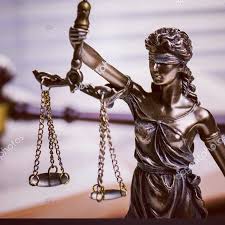Lawyer
The procedure for providing free legal aid
Free legal aid is an important tool for ensuring access to justice and protecting the rights of citizens who cannot afford paid legal services. It plays a key role in ensuring equal access to justice and guarantees that every citizen has the opportunity to protect their rights regardless of their financial situation. In this article, we will consider the procedure for providing free legal aid, its types and basic principles.
Basic principles of free legal aid
- Accessibility: Free legal aid should be available to all those who need it, regardless of their place of residence or social status.
- Equality: Every citizen has the right to equal access to free legal aid without discrimination.
- Efficiency: The provision of free legal aid should be effective and timely to ensure proper protection of citizens' rights.
- Confidentiality: Information obtained during the provision of legal aid must remain confidential and cannot be disclosed without the consent of the person.
Types of free legal aid
Free legal aid can be provided in various forms, including:
- Primary legal aid: This includes the provision of legal information, advice and clarification on legal issues. It may also include assistance in drafting applications, complaints and other legal documents.
- Secondary legal aid: It involves the protection and representation of citizens' interests in courts, state bodies and other institutions, drafting procedural documents and other actions necessary to protect the rights and freedoms of citizens.
The procedure for providing free legal aid
Applying for legal aid
A citizen in need of free legal aid has the right to apply to free legal aid centers, which are established in each region. An application may be made in person, by mail or via electronic means of communication.
Consideration of the application
After receiving an application, the free legal aid center conducts a preliminary review to determine whether it meets the criteria for providing assistance. This includes checking the documents confirming the right to receive assistance and analyzing the applicant's situation.
Appointment of a lawyer or attorney
In case of a positive decision to provide free legal aid, the center appoints a lawyer or attorney to assist the applicant. The appointment is made taking into account the specialization of the lawyer or attorney and the nature of the legal problem.
Provision of legal aid
The appointed lawyer or attorney starts providing legal aid, which may include consultations, drafting documents, representation in courts and other bodies. It is important that the assistance is provided in a timely and effective manner to ensure proper protection of the applicant's rights.
Criteria for receiving free legal aid
To receive free legal aid, citizens must meet certain criteria, which may include
- Social status: Free legal aid may be provided to low-income persons, pensioners, disabled persons, large families, unemployed persons and other vulnerable categories of the population.
- The nature of the legal problem: Certain legal issues, such as human rights protection, child protection, and family disputes, may be prioritized for free legal aid.
- Availability of documents: Applicants must provide documents confirming their eligibility for free legal aid, such as income certificates, pension certificates, disability certificates, etc.
Organizations providing free legal aid
Free legal aid can be provided by both governmental and non-governmental organizations. The main providers of legal aid are:
- Free legal aid centers: State institutions that are established in each region and provide both primary and secondary legal aid.
- Bar associations: Bar associations and other associations of lawyers can provide free legal aid as part of social programs or on a voluntary basis.
- Non-governmental organizations: Non-profit organizations that protect human rights and provide legal aid can also provide free legal aid.
- Legal clinics: Legal clinics at educational institutions where students, under the supervision of professors, provide legal aid to citizens.
Problems and challenges in providing free legal aid
Despite the importance of free legal aid, there are a number of problems and challenges that can complicate its provision:
- Insufficient funding: Limited funding for state legal aid programs can lead to a lack of resources to ensure an adequate level of assistance.
- Insufficient number of lawyers and attorneys: In some regions, there may be an insufficient number of lawyers and attorneys willing to provide free legal aid.
- Information awareness: Citizens may be unaware of their rights to free legal aid and how to obtain it.
- Bureaucratic obstacles: Complicated procedures and documentary requirements can make it difficult for citizens to access free legal aid.
Ways to improve the free legal aid system
To ensure the effective provision of free legal aid, it is necessary to improve the system of its provision:
- Increase funding: Ensure sufficient funding for state legal aid programs to cover all the needs of citizens.
- Attracting new resources: Attracting additional resources, such as volunteer assistance, support from international organizations and the private sector.
- Raising public awareness: Conducting information campaigns to raise awareness of citizens about their rights to free legal aid and how to obtain it.
- Simplification of procedures: Simplifying the procedures for applying for free legal aid and reducing bureaucratic obstacles to ensure quick and effective access to assistance.
Conclusion.
Free legal aid is an important element of the legal system that ensures access to justice for all citizens, regardless of their financial status. An effective system of free legal aid contributes to the protection of the rights and freedoms of citizens, raises the level of legal awareness and trust in the legal system. It is important to continue to develop and improve this system to ensure its accessibility, effectiveness and equality.
Legal analysis of the situation / written consultation with a lawyer will help you solve your problem. Please contact the legal marketplace "CONSULTANT", which provides any services you need to choose from: legal opinion, Writing a lawyer's request, analysis of the situation by a lawyer, analysis of the situation by a lawyer, legal analysis / legal analysis of the situation, legal conclusion, legal opinion, lawyer's opinion, audit by a lawyer, legal audit, written legal advice. A lawyer consultant is always there for you!




































